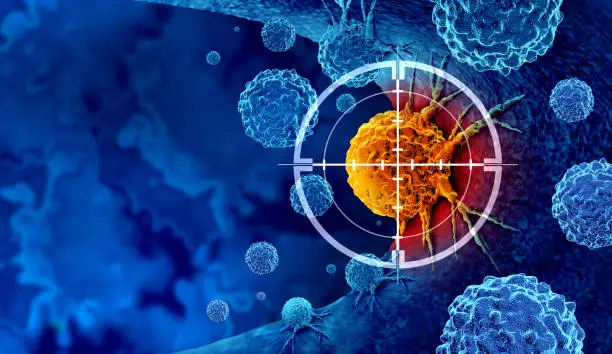Cancer, a word that strikes fear into the hearts of many. While genetics and lifestyle choices play significant roles in its development, we often overlook the impact of our dietary habits. It’s time to shed light on the 20 cancer-causing foods that you should avoid if you want to lead a healthier life. Let’s delve into the surprising ways these Twenty foods can harm your health and how you can make better dietary choices to reduce your risk.
- Processed Meats: A Risky Choice
Processed meats, including bacon, sausages, hot dogs, and deli meats, are delicious but come with a price. They contain harmful chemicals like nitrates and nitrites, which can transform into cancer-causing compounds when consumed. These meats are also laden with sodium and saturated fats, both contributing to cancer development. To safeguard your health, limit or eliminate processed meats from your diet, opting instead for lean meats, fish, and plant-based protein sources.
- Fried Foods: The Sizzle and the Risk
Fried foods like french fries, fried chicken, and donuts are indulgent but detrimental to your health. High-temperature frying can produce acrylamide, a substance linked to ovarian, kidney, and pancreatic cancer. These foods are calorie-dense and high in unhealthy fats, promoting obesity and other health issues. Choose healthier cooking methods such as baking, grilling, or sautéing to lower your cancer risk.
- Sugar: The Sweet Saboteur
A diet rich in sugar is a breeding ground for cancer, including breast, ovarian, and colorectal cancer. Sugar can trigger inflammation, fueling cancer development. Excessive sugar intake boosts insulin production, encouraging cancer cell growth. Opt for natural sugars found in fruits, vegetables, and whole grains while limiting sugary treats like soda, candy, and baked goods.
- Alcohol: A Double-Edged Sword
Alcohol consumption has been associated with several cancer types, including breast, liver, and colorectal cancer. When alcohol breaks down in the body, it forms acetaldehyde, a harmful chemical that damages DNA and elevates cancer risk. Additionally, alcohol contributes to free radical production, further increasing cancer risk. Limit alcohol intake or abstain entirely, following the guidelines of the American Cancer Society.
- Artificial Sweeteners: A Controversial Choice
Artificial sweeteners like aspartame, saccharin, and Sucralose have raised questions about their potential links to cancer. While conclusive evidence in humans remains elusive, studies in rodents suggest a possible connection. These sweeteners can also lead to diabetes and obesity, both risk factors for cancer. Consider natural alternatives like honey, maple syrup, or Stevia in moderation, keeping your overall sugar intake in check.
- Soda: A Sugary Menace
Soda and sugary drinks, such as sports and energy drinks, are linked to breast, colorectal, and pancreatic cancer. Loaded with sugar and calories, they contribute to obesity and other cancer-promoting health issues. Soda often contains harmful chemicals like caramel color and 4-methylimidazole (4-MEI), which are associated with cancer. Opt for healthier alternatives like water, unsweetened tea, or low-fat milk.
- Hydrogenated Oils: A Hidden Threat
Hydrogenated oils, known as trans fats, increase the risk of breast and colorectal cancer. These oils are commonly found in baked goods, fried foods, and snacks. While they enhance shelf life, they also create harmful trans fats during the hydrogenation process. These fats raise LDL (bad) cholesterol levels and trigger inflammation, both cancer-promoting factors. Choose foods with healthy fats like olive oil, avocado, and nuts to protect your health.
- White Flour: Stripped of Nutrients
Foods made with white flour, such as white bread and pasta, raise the risk of colorectal cancer. Highly processed and devoid of nutrients and fiber, white flour fuels inflammation and other cancer-related health problems. It often finds its way into processed snacks like crackers and cookies, compounding the risk. Opt for whole-grain alternatives like whole wheat bread and pasta, rich in nutrients and fiber that promote good health.
- Red Meat: A Double-Edged Protein
Red meat, including beef, pork, and lamb, increases the risk of colorectal, pancreatic, and prostate cancer due to its high saturated fat content. Additionally, red meat contains heme iron, which can damage the colon lining. Choose lean cuts and healthier cooking methods like grilling or broiling when consuming red meat. Avoid processed meats like bacon and sausage, which amplify cancer risk.
.
- Dairy Dilemma
Dairy products, such as milk, cheese, and yogurt, have been linked to breast, ovarian, and prostate cancer. Dairy contains hormones like estrogen, promoting cancer growth. High-fat dairy products can also trigger inflammation. Consider low-fat dairy options and explore plant-based milk alternatives like almond or soy milk.
- Grilled Vegetables: A Tasty Concern
Grilled vegetables are a nutrient-rich, low-calorie choice, but grilling at high temperatures can produce cancer-causing chemicals called heterocyclic amines (HCAs) and polycyclic aromatic hydrocarbons (PAHs). Reduce cancer risk by grilling vegetables at lower temperatures for shorter durations, avoiding charring. Marinades containing vinegar or citrus can also minimize HCAs and PAHs formation.
In conclusion, your diet plays a pivotal role in cancer prevention. By making gradual changes in your food choices and lifestyle, you can take control of your health and minimize the risk of cancer. Remember, a balanced diet, regular exercise, and other healthy choices can go a long way in enhancing your overall well-being. Thank you for joining us on this journey to a healthier, cancer-free life.
